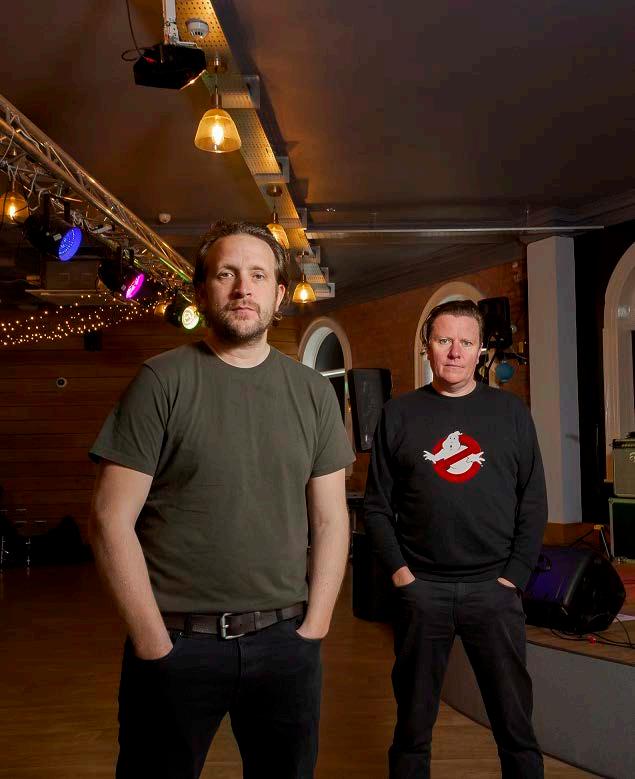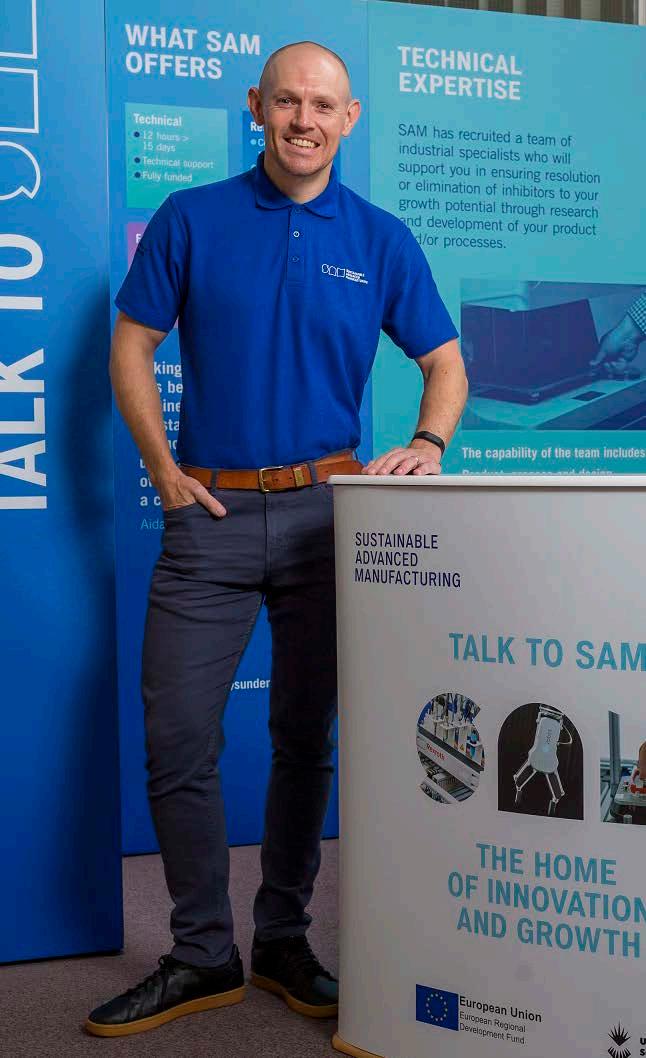
5 minute read
Cultural cause
University teams up with music stars for pioneering cultural course…
A pioneering music programme which will nurture, develop, and produce the music artists of the future is set to launch at the University of Sunderland.
Advertisement
The Modern Music Industries course will be led by some of the North East’s most prolific musicians.
Set to begin in September, the course will be led by musicians, for musicians - and it aims to fully equip students for life in an industry that has undergone a radical transformation during the past 20 years. The programme will be run by the University in partnership with the Northern Academy of Music Education (NAME) – made up of Barry Hyde, from the Futureheads, and business partner Dan Donnelly, who has performed with Celtic Social Club, The Wonder Stuff, and The Levellers. The first cohort of around 30 students will be based in music studios in the cultural heart of the city, and will offer unique opportunities for a fresh wave of artists looking to break through. The programme further cements not only the city’s reputation as a hotbed of cultural resurgence but shows the ‘professions-
facing’ direction taken by the University to ensure graduates are work-ready. Barry said: “You used to have to go to a recording studio and would have to pay thousands of pounds to hire for the hour, day or week. “Today, we live in a time where music technology dictates, and people have direct access to that technology. You can make an album in your bedroom – the ability is there; in many ways now is a great time to be a music artist.” The programme will be led by Barry and Dan. The pair took over the lease of Sunderland’s The Peacock pub, in Keel Square, in 2019. It is hoped that students will be partly based in Birdland Studios, located in renovated rooms above The Peacock, while the academic side will take place in rooms at the nearby Fire Station venue. Barry said: “There is huge respect between ourselves and the University and we are inspired by the vibrancy there is in the Higher Education sector here in Sunderland.” So what can students expect from their three years of study?
“It’s exciting,” says Barry. “They will be working directly with music professionals who have a vast knowledge of the industry dating back to the mid-90s. “We are professional artists who are still making and releasing music on an international level. This is a programme designed for the 21st Century music business. “It’s no longer enough to be just a musician; you have to be a businessperson, an entrepreneur, an A&R specialist, a social media expert. “And although you will learn all of these things, we haven’t forgotten the most important factor of all – making great music. “The aim is to make a creative explosion and we will be here to mentor and guide these self-motivated musical artists.” In an industry that is notoriously fickle, does Barry believe a University programme can help artists – often here one day, gone the next – achieve greater career longevity? “There is undoubtedly a lot of luck involved in this industry,” he adds. “But you can make yourself more lucky. And this programme will equip you with that very ability." Despite the current pandemic taking a heavy toll on the arts and creative industries, Barry believes now is the time for a programme of this type. He said: “I don’t believe, and will never accept, that art is a secondary career. The music business alone generates billions of pounds every year.” Professor Arabella Plouviez, Dean of Faculty of Arts and Creative Industries, said: “Sunderland as a city, has a strong tradition in music and, like all the creative industries, it becomes even more important as part of how we move forward from the current challenges. “This new programme that NAME is launching in collaboration with our faculty is a really exciting opportunity for musicians to learn about the contemporary music industry, develop their own creative voice within that, and draw upon the vibrant scene locally, regionally nationally and internationally.”

FIND OUT MORE ABOUT THE MODERN MUSIC INDUSTRIES PROGRAMME BY VISITING:
SUNDERLAND.AC.UK/STUDY/PERFORMING-ARTS/ UNDERGRADUATE-MODERN-MUSIC-INDUSTRIES/

Millions in value added to region’s businesses thanks to University project
A multimillion-pound University of Sunderland project is having a critical impact on North East businesses, a new report has found. At a time when many of the region’s manufacturing SMEs are having to re-think and readjust their practices, a University support project is proving a much-needed lifeline by adding millions in value to participating businesses. The Sustainable Advanced Manufacturing Project (SAM) - one of the North East’s largest investment programmes - aims to help businesses become more productive and sustainable. Phase One of the project, which ended in December 2020, has proved a huge success, providing £800,000 in matched funding as well as practical and research support to over 200 SMEs across the region. Now, an Interim Summative Assessment of the scheme has revealed the extent to which the project is reaping rewards for those businesses involved. SAM participants surveyed reported: • An overall £47.1million gross value added to businesses who engaged with SAM in
Phase one. • Growth in employment of 25.1 per cent and sales growth of 30.1 per cent between the baseline position and the business position following programme support. • The vast majority (89.5 per cent) of businesses felt that the support they received was either of high quality or very high quality. • 82.8 per cent of respondents agreed or strongly agreed that the SAM project team understood the needs of their business. • 82.6 per cent of respondents agreed or strongly agreed that the grant application process was easy. Ken Teears, SAM Project Manager, said: “I’m absolutely delighted about the findings of the Interim Summative Assessment.”







